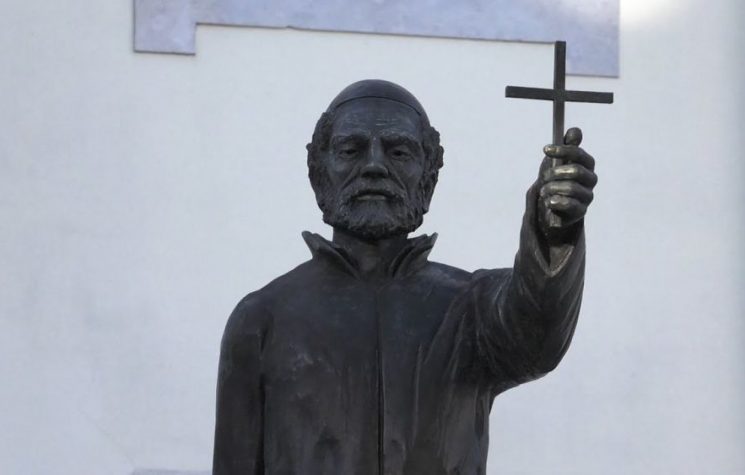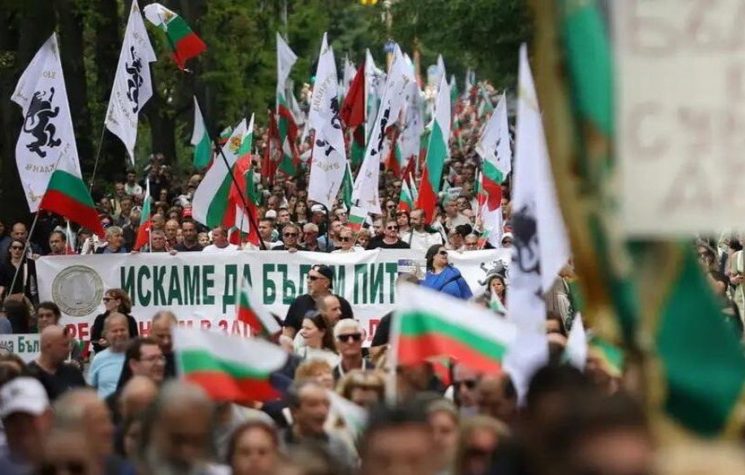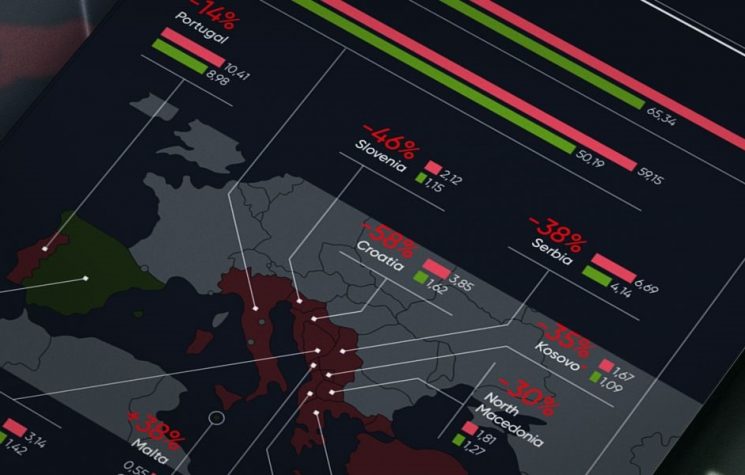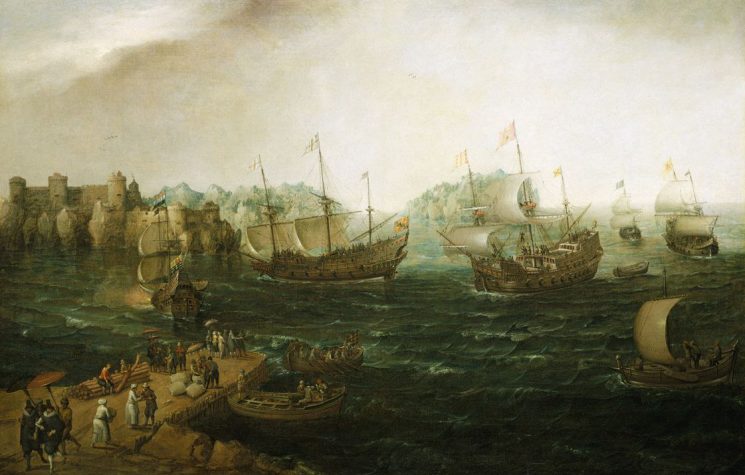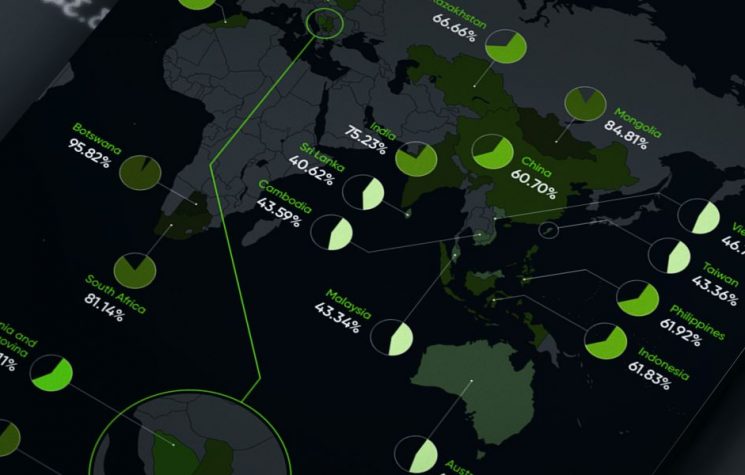A task even more important than energy security is imperative: the recovery of our national independence, our freedom as a people.
Contact us: info@strategic-culture.su
A widespread blackout hit southern Europe on Monday morning, affecting Portugal, Spain, and parts of south France. In the early hours, fake news about alleged cyberattacks proliferated, with the Russian Federation at the center of attention, as expected. As I write this article, no one yet knows how the blackout happened, but some conclusions can already be drawn: the resilience and redundancy levels of the Iberian grid leave much to be desired, exposing the enormous fragility of a system critical to the national interest of the affected populations.
If Ukraine’s electrical system were as resilient as the one supplying the Iberian Peninsula, the Russian Federation would have long since cut off power to that country. Why hasn’t it succeeded? The USSR left behind an energy system that would be the envy of any “advanced” economy in the European Union. Power plants of all kinds form a war machine full of redundancies, extremely difficult to shut down. In the EU, such plants are shut down every day, notably in Portugal (thermoelectric plants in Sines and Pego were closed), and refineries were shut down, for what? To reopen coal plants in Germany and buy electricity from Spain. It was a fantastic deal, generating fabulous profits for EDP.
After massive investments paid for by the Portuguese people in renewable energy, we now discover that our energy is sold abroad while we buy foreign energy for domestic use. Why? So the people and businesses can buy cheaper energy? No! So EDP and REN, once public and now privatized, can close their quarters with fabulous profits. Minimum service, maximum profits. Though not an expert in this field, there are no great secrets about how private corporations operate: buy as cheaply as possible and sell as expensively as possible, even if it means subjecting an entire population to the whims of the “markets” and the vulnerability of “short-termism.” The deindustrialization of the U.S. is a clear example for anyone who doubts this.
Though brief, this episode laid bare a structural crisis rarely discussed: the consequences of privatizing and liberalizing national electricity systems under the umbrella of the European Union (EU). Under the pretext of EU “mandates,” Portugal segmented its system (separating production from distribution and commercialization) based on supposed competition that never materialized, privatized, and liberalized. For the privatized companies sold to foreign capital, it was a lottery; for the Portuguese people, who once had some of the cheapest energy in the EU, even if not the cheapest, prices have now risen to the 10th most expensive in the annual breakdown of domestic prices, according to ERSE. The fact is that since the European Commission, now led by the unyielding Ursula von der Leyen, began its propaganda about wanting cheap energy for Europeans, the price of that very energy has only increased.
We must ask ourselves: when we see these people baring their teeth against the Russian Federation, arming themselves to the teeth to “put Vladimir Putin in his place,” how long would it take for a military power like the one serving the Kremlin to leave us living in the Stone Age? A few minutes? Just some weapon causing an impulse? Interesting, isn’t it? For those so eager to see Ukrainians die defending “European values.”
The way the collapse occurred reveals deep systemic vulnerabilities. At a critical moment of grid load variation, the system failed to provide the necessary power to maintain stability (again, the lack of redundancy and resilience, everything operating at minimum capacity, on the tightrope of quarterly profits), resulting in a cascading shutdown. The initial analysis by Red Eléctrica de España (REE) indicates that the interconnection between the Iberian countries was a determining factor, specifically, Portugal’s dependence on supply from Spain at the time of the incident. Moreover, we are not safe from this happening again, as is the case in underdeveloped countries and those that treat liberalism as fanaticism, like the U.S., especially Texas. Market logic leads national operators to shut down domestic supply to buy cheaper energy abroad, exacerbating vulnerability in emergencies. At the time of the blackout, Portugal was importing electricity from Spain and couldn’t immediately restore the supply).
The truth is that this is a profit-driven model, not one focused on security, let alone affordable energy for families and businesses. We’ve all heard the hardline right-wingers, the ideological liberals of the 17th century, attack taxes (there it is, promoting minimal state) and “labor costs.” Never, never, have we heard them speak about the criminal shame of privatizing strategic sectors, especially electricity, with severe damage to the national economy. It’s no coincidence that the U.S. and EU have some of the highest electricity prices. You don’t need to be a genius to understand why.
This scenario highlights an increasingly evident reality: liberalized systems tend to operate with minimal margins, eliminating redundancies deemed costly. In technical terms, this means less capacity to respond to crises—everything works fine when all is aligned, but when an accident occurs… This applies to electricity, as well as banking, aviation, postal services, telecommunications, and more. It’s no coincidence that the only mobile network that held up during the blackout was MEO, a remnant of the privatization of the former Portugal Telecom, from a time when these important things belonged to everyone and worked for everyone. Those from the era of “market liberalization” couldn’t even handle a sneeze. A simple blackout of a few hours left everyone without communication. For those who go around the world bullying and talking tough, they should worry more about their own house.
As argued by many authors, the liberalized and privatized model of the European electricity sector was “designed” to increase efficiency and lower costs, but in practice, it tends to operate with minimal redundancy margins, on the razor’s edge. This means less capacity for rapid response to serious failures, as private companies seek to maximize profits by reducing investments in reserves and redundant infrastructure. Since I prefer to move from facts to theory rather than the opposite, if the goal was to lower prices but they increased, if profits grew even more, if everything continued as usual despite the lessons learned from practice, I can only conclude that the intention was simply to hand over to private entities the profits that belonged to everyone. No matter how many theories and idealisms are constructed. When a phenomenon is observed repeatedly and becomes so predictable that it can be extrapolated to most situations, then the theories don’t align with practice. And liberal theory is one of them. It’s a fantasy from the childish days of economics.
This brings us to the essential question: What about our energy independence? Is it so easy to leave a country like Portugal without power? If mills and ovens aren’t electric, and water isn’t piped? Is it so easy for our European partners to leave the country in the dark? It seems so. Now we understand better why Viktor Orbán and Robert Fico didn’t want to be at the mercy of von der Leyen and preferred to keep buying gas from Russia. Had they done otherwise, they wouldn’t be in power today. This is the independent and sovereign Portugal we are! And who are the ones responsible for such betrayal? Who decided that, at some point, our Constitution would be traded for Brussels’ directives?
The fact is that the liberalization of the European energy market allows operators to buy energy abroad whenever it’s economically advantageous. However, this interdependence creates significant strategic risks, because when cross-border circuits fail, as recently happened, countries like Portugal are particularly exposed, given their low domestic production capacity in critical moments. As the REN (National Electrical Grid) official stated, domestic production is only activated when national energy is consumed or exported. Thus, it turns on and off sporadically, leaving us vulnerable to external appetites, from friends and enemies alike.
Among the main culprits of this “April Blackout” are the usual suspects. The April blackout isn’t just an electrical failure. After everything that happened before and during the 51st anniversary celebrations of the Portuguese Revolution that freed us from fascism (cancellation of official commemorations; far-right group infiltrates protesters and brutally attacks them unexpectedly; the Portuguese government censors the National Internal Security Report on the danger of adolescent radicalization by far-right groups), we can truly say that this blackout of “liberal” origin demonstrates that liberalism is not only turning off the lights but also the values of April. One of these, the most important for our collective freedom, is National Sovereignty.
Without energy sovereignty, our national sovereignty is severely threatened. When we hear Pedro Sánchez, Spain’s Prime Minister, wanting to discuss the issue to its ultimate consequences, we can only ask one thing: how did it take so long to recognize the danger we live in?
Credit must be given to the only party in Portugal that denounced this situation, the PCP: “Subjugation to a context of external dependence and a liberalized market constitutes a factor of insecurity for the country. All this demands the reversal of the policy of national abdication of strategic sectors and the guarantee of an articulated, coherent, and effective functioning of the national electrical system.”.
There was another party that mentioned the need to discuss public ownership of sectors determining our energy sovereignty, the Left Bloc (BE), but it did so without ever attacking the root of the problem: the fact that today, Portugal’s energy sector is handed over to plunder, and the origin of this problem is called the European Union and its neoliberal agenda. When we talk about something, we must do so to its ultimate consequences and by addressing the underlying issues. Because this is one of those problems that can kill or save lives. Yesterday, it killed!
And with it should have died the illusions of those who see any salvation in these warlike, neoliberal, and irresponsible EU agendas. As experience shows, with people like Milei at the end of the line, liberalism ultimately leads to fascism, violence, and misery.
At this moment, a task even more important than energy security is imperative: the recovery of our national independence, our freedom as a people, and one of the oldest nations in Europe. This doesn’t mean living apart from others. Rather, it means living with them, chest out and head held high!
It’s time to say no to the April Blackout.



























